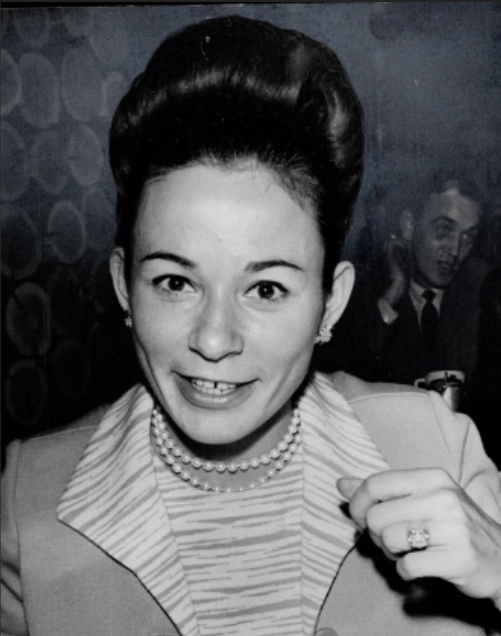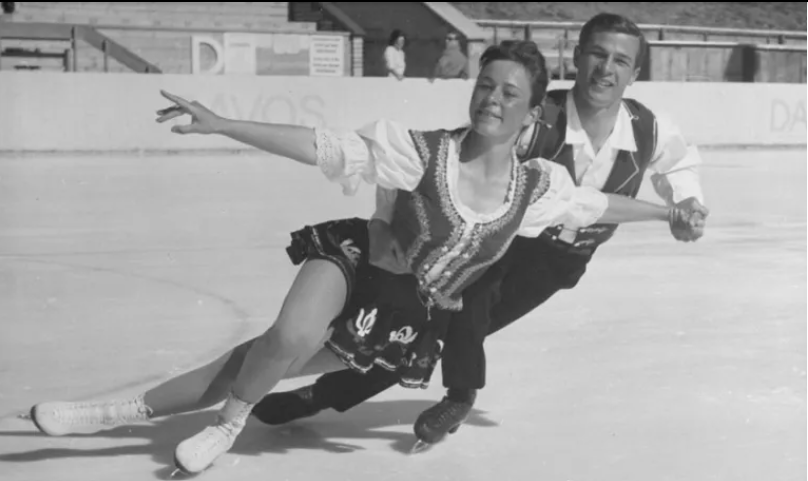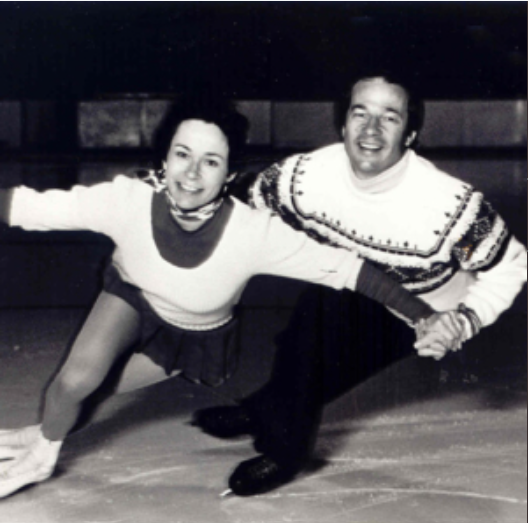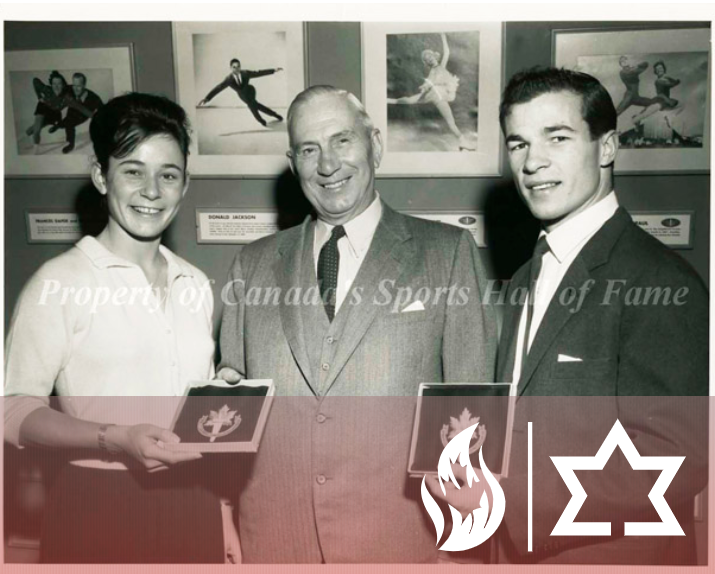welcome-home-blog-by-debbi-wilkes
For Canadian and World Pair Champion Maria Jelinek, life began in Prague, her birthplace and home for her Mom and Dad, Jarmila and Henry, and her four brothers.

Photo Credit: Olympic.ca
She doesn’t remember exactly how skating became such a focus but she does remember the family stories about how enthralled her mother became when Barbara Ann Scott won the Olympic Gold medal in 1948. “My mother was so inspired she even decided she wanted a world champion in our family,” states Maria, “two interesting plot twists considering where our family ended up and where skating took us.”
In Prague, her mother tried out her skating dream with two of Maria’s older brothers, first Frank and then Richard, but the local coach told her to forget it. Instead, he pointed to a cute young couple out on the ice who he thought had promise. “They’re my kids too!” Jarmila announced. Suddenly she knew she had her future champions.
With that, the skating journey began for Otto and Maria. For their family, a journey far more dangerous lay ahead.
It was 1948 and Communism had taken over the country. “In those days, the border was already closed,” recalls Maria. “Only diplomats and people working for the government were allowed out of the country. My dad, as owner of a cork factory, by then nationalized and taken over by the government, was one of them.”
From Europe where Maria’s dad was sent to work, he set in motion a plan for the rest of the family to escape. “Freedom was important to my dad. He’d already been jailed by the Germans during WWII … and refused to accept what living under communism might mean for his children’s future.”
With help from a friend, a South American diplomat, false passports were created, travel plans were arranged. The various possibilities were terrifying to consider if the plan failed but Henry was determined.

Photo Credit: Olympic.ca
“My younger brother and I were too young to understand that we were in a political nightmare attempting to escape Czechoslovakia, so my parents pretended it was a game … and that the South American diplomat was our father.”
Looking back, Maria remembers what growing up in Prague was like. “We lived in what I thought was a palace … today it’s the Austrian Embassy … but realizing now the kind of bravery my parents had back then, I’m so grateful. They’d worked hard to succeed … and with that one decision … they had to leave everything behind.”
That passage took the family first to Switzerland and then eventually to Canada and finally to Oakville, close to the US market where Henry felt there was good potential for re-starting his cork business.
Those first months, life was full of chaos, starting over, learning a new language and trying to settle in. To bring some normalcy to the children’s lives, Otto and Maria were enrolled in the Oakville Skating Club, the club which became the home base for their entire skating career.
By 1955 their pair work had improved so much that coach Bruce Hyland suggested they compete at the Canadian Championships in Junior Pairs. “With the event being held in Toronto, we decided to put a program together … 3 ½ minutes … and to our surprise, we won!”

Photo Credit: Skate Canada
Then things started to get really serious. Over the following years, the pair won Canadian Senior and North American titles, world team representation … all leading to the finale, the World Championships in 1961 back in their hometown, Prague, the first time the global event was to be held behind the Iron Curtain.
For Otto and Maria, for the Canadian Figure Skating Association and for the federal government, the location presented some challenging and potentially dangerous circumstances. With the Jelinek family having previously escaped, the chance that the brother/sister team would be taken into custody loomed large. However, thanks to negotiations by the Canadian government, Otto and Maria were finally guaranteed safe passage.
Still, the threats lingered.
After winning the North American Championship that year in Philadelphia, the Canadian and US teams flew together to New York where they separated to fly to Prague, the Canadian team via KLM through Amsterdam and the American team on Sabena through Brussels. “Otto and I were great friends with members of the US team, so we wanted to fly with them on Sabena instead of with the Canadian team. When Bruce heard about our plans, he put his foot down and told us, no, you’ll be travelling with your own team,” Maria remembers. “He saved our lives!” The Sabena flight crashed in Brussels … no survivors.
As a result, Worlds was cancelled and Otto and Maria would have to wait another year to win the World Championship.
“Winning the title in Prague in 1962 was like a fairy tale ending for us … the highlight of my career and so special and meaningful considering our history and the path my family had to take.”
Maria vividly remembers a visit at the time to her childhood home. “Going back to Prague, visiting the house where I was born, seeing china engraved with the family ‘J’, and books with my mother’s and father’s signatures, was very emotional.”

Photo Credit: Canada’s Sports Hall of Fame
Maria attributes a lot of her success to her love of the sport and the roles her parents took. “They were not aggressive in their support … and only came to watch when they were invited. How hard we trained was up to us.”
Today it’s the skating friendships Maria enjoys the most, whether initially sown at the Oakville club or developed while travelling around the world for skating.
“Skating is a BIG world … but so small when we all get together … we have so much in common. We all learned about the world, about discipline, about music. And our small club provided the tight-knit community we needed to grow.
“We were proud to represent Oakville. After everything our family had been through, the club helped us learn that anything is possible.”
Previous Post
Let’s Talk About It: Bev SmithNever Miss an Update
Be the first to know about upcoming Skate Ontario events and special updates—subscribe today!
By submitting this form, you are consenting to receive marketing emails from: . You can revoke your consent to receive emails at any time by using the SafeUnsubscribe® link, found at the bottom of every email. Emails are serviced by Constant Contact


